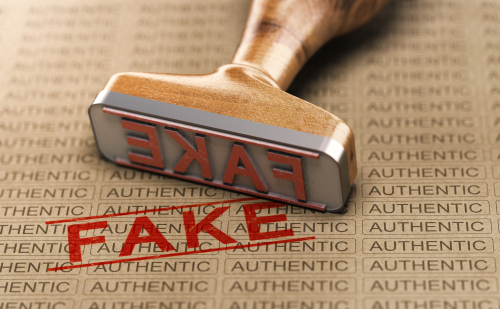
U.S. Customs and Border Protection (CBP) cautioned consumers heading into the holiday shopping season to be on the lookout for counterfeit products in the wake of the agency’s largest seizure of fake products to date.
Most pirated items include apparel, accessories, watches, jewelry, and consumer electronics. On Sept. 15, 2022, CBP agents at the Los Angeles/Long Beach Seaport reported that in less than a year, they had seized $1 billion worth of such counterfeit goods, a first in U.S. history. The previous record, set over the whole of 2021, sat at more than $725.3 million.
Things are only becoming more difficult in this area due to the rise of e-commerce. According to the agency, criminals have begun hiding their wares behind seemingly legitimate listings on well-known sites to multiply their proceeds.
“CBP commits substantial resources in intercepting and seizing products that infringe intellectual property rights such as trademarks, copyrights, and patents. These illicit goods often fund criminal activities and organized crime,” said Carlos C. Martel, Director of Field Operations in Los Angeles. “These historic records show that smugglers exploited the increased demand for products via e-commerce and other sources.”
In the U.S., it is not just a crime to sell counterfeit goods like these, it’s also a crime to knowingly purchase them, largely due to their attempts to work around intellectual property laws and evade taxes. If found guilty, the accused could face state civil or criminal penalties. Additionally, CBP emphasized that counterfeiting often benefits other enterprises, such as forced labor or human trafficking, and can pass on the results of unsanitary work conditions to unwary purchasers.
To avoid some of the largest red flags, CBP urged Americans to purchase goods directly from either trademark holders or authorized retailers rather than third parties. It also encouraged in-depth readings of reviews, phone numbers, and addresses of sellers if shopping online.




